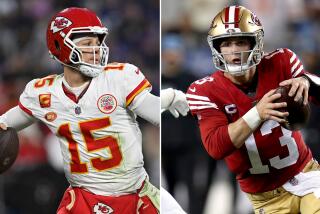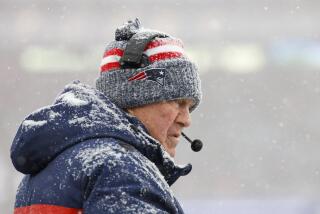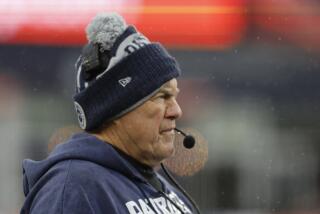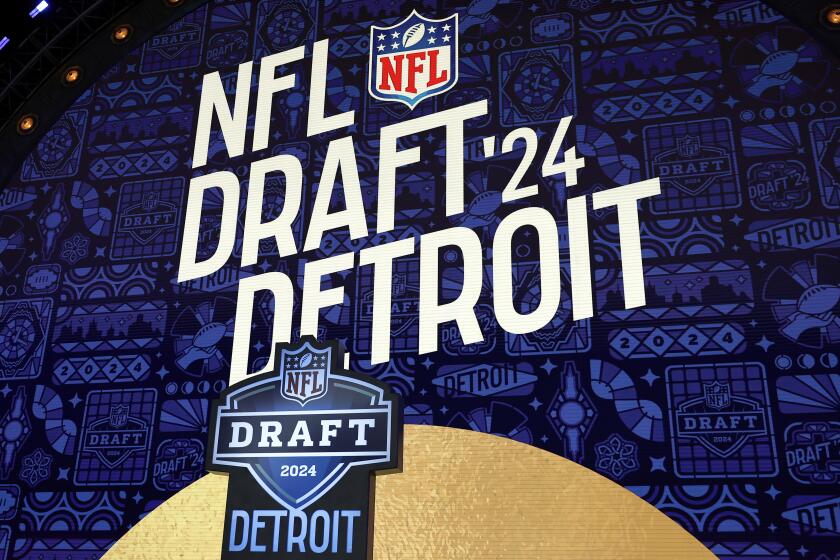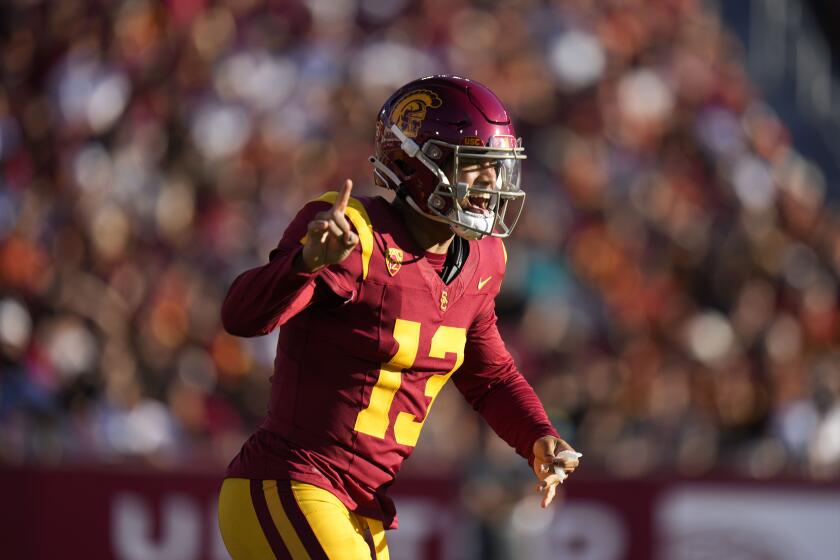Roger Goodell gets candid on the future of the NFL
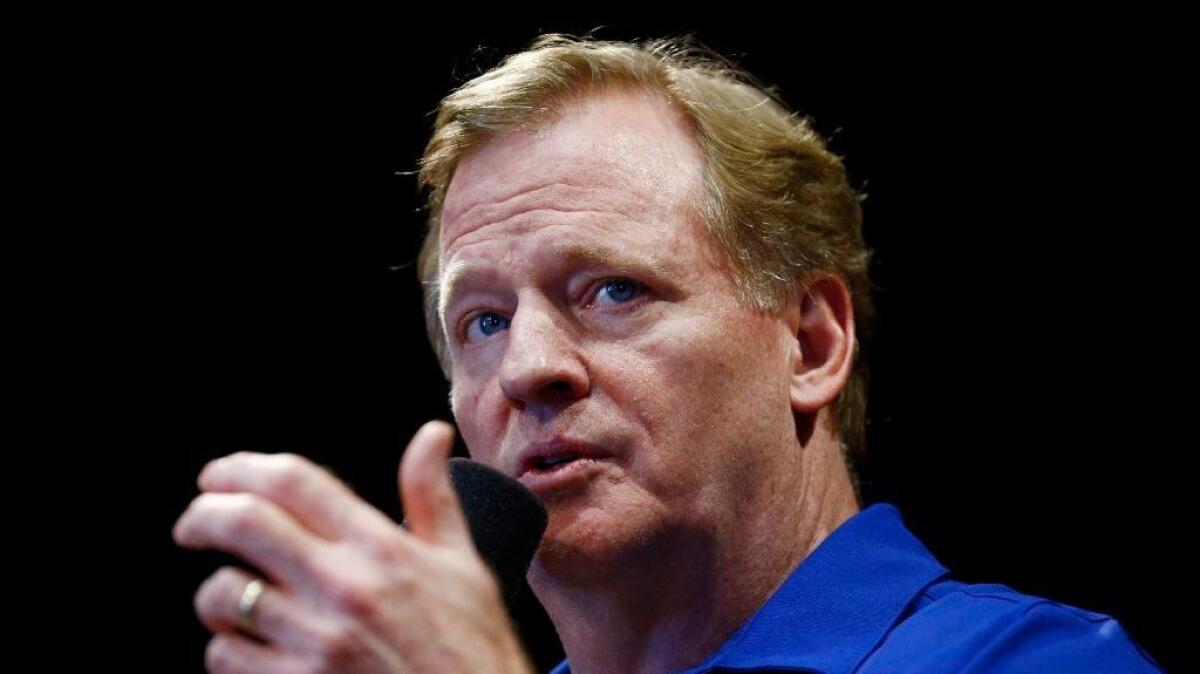
NFL Commissioner Roger Goodell has the most powerful job in sports and among the most challenging.
Whether it’s the national anthem controversy, the fight over suspending Dallas Cowboys running back Ezekiel Elliott, or the constant drive to make football safer, he understands that he can never please everyone. Nor does he try.
“It’s impossible to make everyone happy,” Goodell said. “But I don’t think there’s anything you can do in life where you can please everybody — particularly in the world we’re living in today. But I don’t think that’s the objective. It’s obviously not impossible to manage a successful league like the NFL. We’ve proven that.”
Goodell will be in the spotlight Thursday night when the defending Super Bowl champion New England Patriots open the season against the Kansas City Chiefs at Gillette Stadium in Foxborough, Mass. The commissioner will be returning to the lion’s den, where Patriot fans are still angry about last season’s four-game suspension of quarterback Tom Brady over an alleged football-deflating scheme.
But Goodell doesn’t shrink from conflict. He sees the passion — and the boos — as a testament to the strength of the league.
“The NFL’s popularity, the fact that it appeals to so many people, it’s such a big stage, it’s so relevant to society and has such influence, those things probably magnify any issues we have,” he said. “That’s OK. I think people have very high standards and expectations for the NFL, and that’s particularly OK. We want that.”
Goodell recently talked about these and a wide range of other topics in an interview with The Times. He discussed the future of the league, as well as the challenges, opportunities, and even the lighter side of one of the most high-profile jobs around:
For the first time in more than 20 years, the Los Angeles area has two teams. Did the NFL build growing pains into the equation? How long do you think it will take the Rams and Chargers to really take root in this challenging market?
That’s nothing we didn’t know; it’s a challenging market. The size, the fact that it’s the entertainment capital of the world, the fact that we haven’t been there in 20 years. We’re building a world-class stadium that’s going to be part of that experience. That’s not constructed right now. So there’s a transitional phase until we get into that facility and the teams have had a chance to really market themselves and earn the support and respect of their fans.
There’s Jerry’s World in Dallas, and the Inglewood stadium is estimated to cost $2.6 billion. Is this trend sustainable? Can you imagine the league going to smaller stadiums?
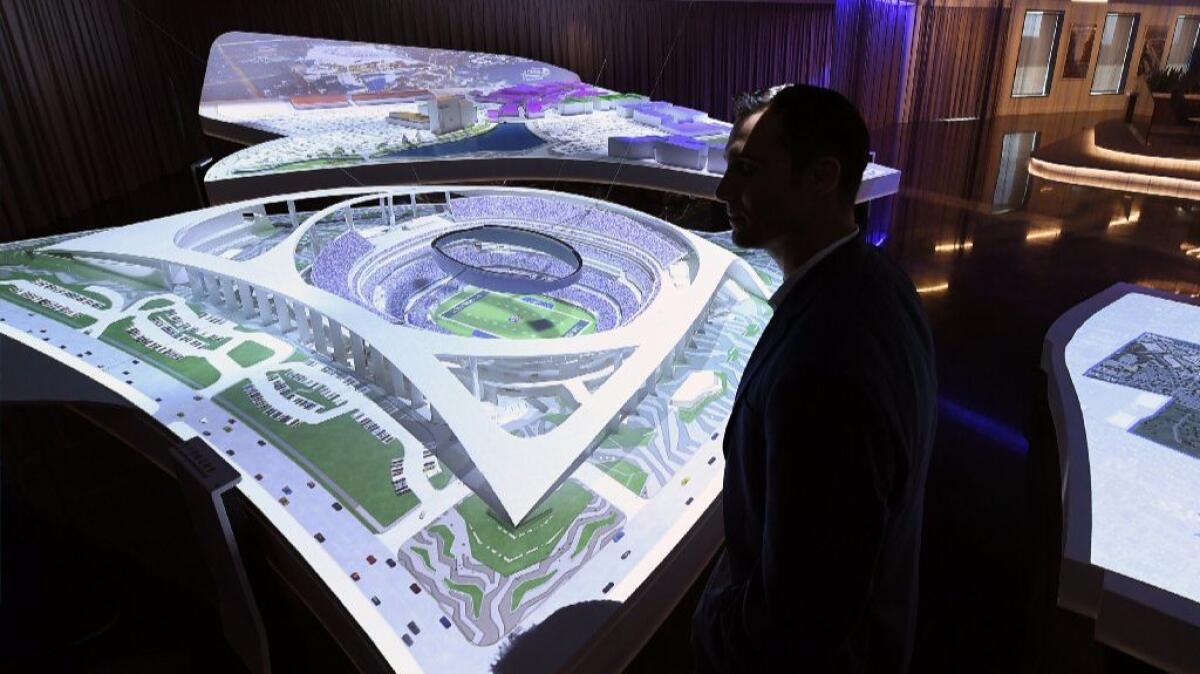
I would tell you that everyone ,when they build a stadium, most of them look at it and say, “I wish I’d built a few less seats.” A large part of that is not because they can’t sell them. It’s because you’re creating a more intimate experience. That’s the real objective for us, to create that incredible experience where the stadiums are better designed. Obviously, the larger the facility, the harder it is to do that.
The vast majority of fans consume the NFL from the couch. With people watching more and more on mobile devices, is TV becoming a thing of the past?
I don’t think television is going away. Most experts will tell you that it’s going to continue to be the most dominant platform for years to come, but you have to be on all those other platforms. Because consumers, particularly the younger demographics, are consuming on their phones or tablets or other forms of mobile devices.
One of my pet peeves is extra point-commercial-kickoff-commercial. Is that going away?
You’re referring to what we call the dreaded double-up. Our hope is to get that out of the game. It may happen on a very limited basis, which I hope is single digits if it even happens. But the hope is we can take that out. By reducing the number of commercials per quarter from five to four, there should be less need for that.
What was the impetus for improving game presentation?
It’s our constant determination to find perfection, to try to improve what we do on every level. There are times in watching a game where the replay takes far too long because the official is running over talking to the coach, talking to the sideline, looking at the monitor, coming back out, waiting for TV. All of that, we think we can increase the pace of that. Putting the clocks in post-extra point, I think that’s going to dramatically improve the pace of the game.
Your stance on reducing the number of preseason games is well known. How soon could such a reduction happen, and what’s standing in the way?
We have the ability to change the preseason length, in the sense that we could reduce it. We’ve discussed this with the competition committee for several years, about how many preseason games are necessary from a pure football standpoint. Football people recognize that you could get the team ready in the preseason — evaluate players, develop players, create your team culture — with three preseason games. You may want to go to more joint practices, for example, because you can get a lot done. There are always discussions about roster sizes. All of that is the subject of collective bargaining. But remember, we had six preseason games in 1978. Now we’re at four. That could be two sometime in the future.
How soon until there’s a GPS chip in the football for marking the exact spot or determining when it has crossed the goal line?
I always bet on technology. Technology we never dreamed would occur will occur. So I believe there will be a solution to the ball. I don’t know when it will be. I’m not going to make that projection. But I do believe there will be a solution to that.
A recent survey said the national anthem protests have impacted ratings. Do you buy that?
I’ve said to you before, and I’ve said it publicly, that I think a variety of things impacted our ratings. I don’t buy any one particular reason, and we don’t dismiss any reasons. Our job is to address all of those. We don’t subscribe to one theory.
What do you tell the parent of a 12-year-old who says, “I appreciate all the lessons that football teaches, but I just don’t want my kid playing it”?
It is so important for kids to be active and involved in sports. It’s healthy, it’s fun and they learn important values. I look back on my years playing football and it was the most influential thing in my childhood from both an athletic standpoint and also the values I learned such as perseverance, competition, teamwork. Ultimately what kids play is a decision for them and their parents to make. ... We of course think football is a great way to be active and we continue to work closely with Pop Warner, USA Football and at the high school level on health and safety measures including teaching coaches, parents and players about safety protocols, practice guidelines, equipment fitting, and how to recognize and respond to injuries.
You get booed at places like the draft. Then, when you get up close to people they want selfies, autographs, positive interactions. Any slice-of-life examples of people doing that 180-degree turn?
When I first became commissioner, I remember [NBA commissioner] David Stern and [NHL commissioner] Gary Bettman pulling me aside and saying, “You haven’t experienced a draft boo yet.” I was looking at them and I didn’t even know what they were talking about. They said that it’s just traditional. If you go back and look at it, David Stern was booed at every draft except the last one. They started to cheer and he said, “No, no, no. Don’t do that.” It’s part of being a commissioner. Pete Rozelle told me a long time ago, “They don’t cheer for commissioners.”
Have you ever played Madden?
Yes. Not very well, though. It’s a very important fan-engagement tool. It’s something our fans love to do. Madden helps not only with getting people involved and engaged with our game, but it actually teaches them the game.
How about fantasy football? Did you ever have a team before you were commissioner?
I did not.
The NFL has turned the combine, draft, and release of the schedule into big-time TV events. But things slow down between the draft and the start of training camps. Are we going to see a push to make the league more year-round?
The next area we’re focusing on is that May, June, July area. That may be what you consider the deadest time in our calendar. One of the things we’re trying to do is, how do we create more events? Not because we want the games of football to be the focus year-round, but the game of football. What’s it like to build a team, train a team, pick a team? All of those elements are things that we’ll keep doing to make it a year-round, compelling experience for our fans.
So how are you going to try to fill in those months on the calendar?
The idea we’re playing with right now … is focusing on camps. That’s a big camp time. Kids are going off to camps, and players go to camp. We obviously have our offseason workout program and everything we do until the end of June. But creating that kind of, “This is how players train. This is how they prepare.” Players go back into their communities and have football camps. All of those things are critically important, and we’re going to do a better job of putting that on a bigger platform that will help us focus on that element of the game.
Finally, Falcons owner Arthur Blank has made a big splash with the food prices at his new stadium in Atlanta. Hot dogs for $2, refillable sodas for $2, beers for $5. Should other teams start doing that?
I believe our ownership on a variety of fronts has continued to look at the long term as opposed to the short term. That’s a great example of it. The same is true in the media world, where we’ve kept the games on the broadest possible platform to make it easier for fans to engage with the game. It’s the long term. Making the right decisions for the game, and the right decisions for our fans.
Follow Sam Farmer on Twitter @LATimesfarmer
More to Read
Get our high school sports newsletter
Prep Rally is devoted to the SoCal high school sports experience, bringing you scores, stories and a behind-the-scenes look at what makes prep sports so popular.
You may occasionally receive promotional content from the Los Angeles Times.

